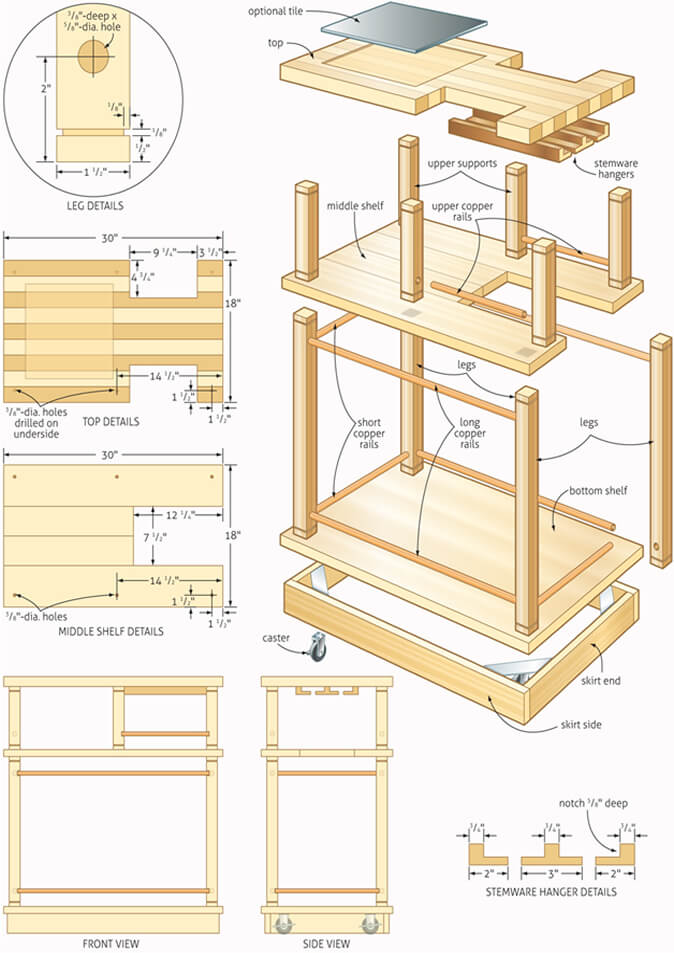A potato bug is called a Jerusalem cricket. These insects are nocturnal and feed primarily on plant material such as flowers, fruit, seeds, and leaves.
They only bite when provoked or threatened––potato bugs (Jerusalem crickets) do not attack human beings.
These large insects can get into homes and basements and they will often inflict a painful bite if they feel cornered or bothered in any way.
The majority of injuries. resulting from collisions with these animals occur between July and November
Typically, the most common complaints involving potato bug bites are swelling, redness, pain and itching.
The Jerusalem Cricket (Potato Bug) Bite
Jerusalem crickets have strong jaws and can cause you to screech in pain if they bite, but the insect is not poisonous. These pesky bugs use their powerful mouthparts for digging into the dirt which makes it even more painful when attacks come from them.
Jerusalem crickets can be found under plant leaves, in flower beds, and amongst decaying plants. Though they seem dangerous because of their size (they are about as large an ant) -you’ll only experience pain if touched by one; which isn’t likely since these creatures don’t like being handled-the worst that will happen is some minor irritation at the best.
To avoid being bitten by a Jerusalem cricket bug, it’s important to know the warning signs before they are agitated. When these pests get ready for attack and start looking bigger than normal with their back legs lifted up in preparation of pouncing on you or making hissing noises that mean just one thing-you’re about to become prey!
What Does a Potato Bug Bite Look Like?
Potato bug bites look like red, swollen areas of skin. You might get a raised bump or blister that can develop into an infection if it’s left untreated.
The Jerusalem Cricket (potato bug) bite is very painful with symptoms initially being swelling, pain, and itching.
If you are bitten by this large insect, see your doctor immediately to prevent the bite from getting infected.
What Should I Do If I Get Bit By A Potato Bug?
If you are bitten by a potato bug—do not panic! The only reason why they would attack is that they feel threatened so remain calm and walk away slowly without causing any further harm.
If you have been attacked by one of these insects—after removing clothing—rinse the affected area with warm water and soap. You can also apply an antibiotic cream to prevent infection.
If the site of the bite becomes infected, seek medical attention immediately.
When to Get Medical Attention
Bites from Jerusalem crickets (potato bug) usually respond well to home treatment; however, if there is no improvement or severe symptoms such as redness around the bite or it continues to swell, see your doctor for professional medical advice.
If nobody gets bitten then this insect has no reason to attack anybody! Many people do not like these insects because they look like a cross between a large ant and a fat wasp; but since they are completely harmless-save your pity on these poor that just want some peace.
How to Treat a Potato Bug Bite
The Jerusalem cricket bite is very painful. To treat a potato bug bite, wash the affected area with warm water and soap or an antibacterial cleanser to avoid infection. You may apply an antibiotic cream over the site of the bite to prevent it from becoming infected. If you see signs of infection such as redness around the bite area, talk to your doctor about home remedies for dealing with a potato bug bite.
What is Jerusalem Cricket (Potato Bug)?
The Jerusalem cricket (also known as the potato bug) is a large insect that has wings and can fly. Although they are not usually aggressive, these insects can bite if handled or threatened. They live in soil and feed on decaying organic matter. When the weather becomes colder in autumn, Jerusalem crickets dig into the earth and form a pupa that will become an adult insects within two months. During this time, they go through several changes including shedding their skin to grow larger. It is at this point that they are most likely to bite if picked up or squeezed by accident as part of their natural defense mechanism against predators such as birds and other insects.
What Is The Lifecycle Of A Potato Bug?
The lifecycle of a potato bug can take anywhere from two months to three years. At birth, young Jerusalem crickets are about one-quarter of an inch long. The average adult Jerusalem cricket is one to one and a half inches long. One egg case will house up to 24 eggs that hatch within three weeks into larvae that grow into nymphs by shedding their skin several times over about six days. Once they reach adulthood, it takes about another six months for them to develop wings, at which point they become sexually mature adults with an average lifespan of two years if they survive the mating season.
What Damage Can A Potato Bug Cause?
Potato bugs do not cause much damage in the garden or around your property unless you have a large infestation on your hands. Jerusalem crickets do not cause any type of soil erosion or property damage, but their presence can be very annoying because they fly towards lights at night and swarm around porch lights in large groups. Their loud chirping noises are also bothersome if you have to share your home with these cricket-like insects. If you get bitten by a potato bug it may startle or scare you depending on how bad the bite is and how much venom was injected into the wound.
Where is the Jerusalem Cricket (Potato Bug) Found?
Potato bugs can be found in many areas, including Canada and the US. They live in a wide area ranging from Mexico all the way up to Canada. Since they are normally found outside, your best bet for getting rid of Jerusalem crickets is to prevent them from entering your home or yard by sealing cracks and gaps in doorways and windows using silicone caulk or foam insulation.
Although these insects naturally feed on decaying plant matter, you can discourage their presence around your garden by placing mothballs along the perimeter to keep them away from the plants you want to protect. Eliminating other food sources such as dump sites will also help reduce potato bug populations over time.
How Do You Get Rid Of Potato Bugs?
Handpicking methods: wait until night when they are on the move, do some research to find out where they congregate, and then place a bucket over them. Once you have collected as many as possible, pour boiling water over those that remain
Insecticides: can be used in cracks or crevices around your home that these bugs typically use as an entryway into your home.
If you have a very large infestation on your hands, calling a professional exterminator might be a better option than attempting to get rid of them yourself. Using fumigation is one of the most effective methods for killing potato bugs along with other insects such as fleas and ticks found lurking indoors. The best time to implement this method is during springtime when the adult Jerusalem crickets are most likely to be out in the open.
What Should You Do If You Are Bitten By A Potato Bug?
If you are bitten by a potato bug, it won’t do much damage unless you have an allergy to their venomous saliva. Symptoms of being bitten include reddened skin, itching, and swelling which can last anywhere from five days to two weeks depending on the severity of the bite. If you suffer severe allergic reactions including hives or shortness of breath after being bitten by this insect, seek medical attention immediately as these may indicate anaphylaxis which is a life-threatening condition.
When Is The Best Time To Get Rid Of Them?
It is best to get rid of Jerusalem crickets at night when they are most active. If you live in an area where you have a large potato bug infestation, it may be best to call a professional exterminator as the easiest way to get rid of these insects is by using fumigation.
What Do Potato Bugs Eat?
Jerusalem crickets eat decaying plant matter such as fallen leaves and flowers so do not kill them if you see them in your yard or garden. If they become a nuisance around the home, place mothballs along the perimeter of your property to discourage these insects from entering your lawn and flowerbeds.
What Is The Difference Between A Cricket And A Jerusalem Cricket?
Although both crickets and Jerusalem crickets have been known to inflict painful bites that can cause severe irritation for several days, there is one major difference between the two bugs. Crickets are nocturnal whereas Jerusalem crickets are diurnal which means that they are active during daytime hours which makes it easier to get rid of large infestations using targeted insecticide sprays.
How to Get Rid of or Kill Potato Bugs
Prevention is better than cure, so make sure to take the necessary precautions when it comes to potato bug infestations.
If you have a small insect problem in your yard or garden, remove all sources of food from the area including fallen leaves and other decaying plant matter that these bugs feed on. If they are becoming a nuisance around the home, seal cracks and gaps using silicone caulk or foam insulation to prevent them from entering your living space.
If you have an outdoor infestation around the home, handpicking potato bugs at night while they are most active can be effective in reducing their numbers over time as long as natural predators such as cats and owls aren’t more prevalent in your immediate environment.
Insecticides can also be used in crevices and cracks around your home to kill them from within. This means you won’t have the risk of being bitten by accidentally disturbing a potato bug hiding away in a crack or hole when attempting to control their numbers with insecticidal sprays.
If you do not have a pesticide that specifically states it is effective in killing potato bugs, try spraying natural products such as neem oil which can be used on both indoor and outdoor plants for this purpose.
If you have a very large infestation on your hands, calling a professional exterminator might be a better option than attempting to get rid of them yourself. Using fumigation is one of the most effective methods for killing potato bugs along with other insects such as fleas and ants. Professional exterminators usually use aluminum phosphide to kill potato bugs while at the same time limiting any damage to the environment.
Pesticides made from Bacillus Thuringiensis (BT) may also be effective in killing or controlling large numbers of this insect if they are sprayed onto soil and plants where they live and breed.
However, you will need to follow all instructions listed on the pesticide label when applying it and make sure that children and pets cannot come into direct contact with them until dry.

